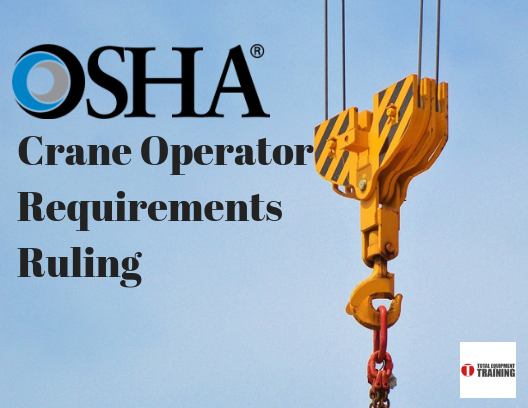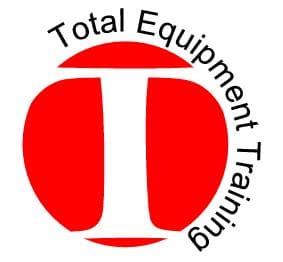On November 9, 2018, The U.S. Department of Labor’s Occupational Safety and Health Administration (OSHA) published their long-awaited final rule which clarified the requirements for crane operator certifications as well as the employer’s duty to ensure all crane operators are able to safely and properly operate the equipment. OSHA’s crane operator final rule aims to maintain the safety and protect the health of workers while reducing the burden of compliance for organizations.
What OSHA’s Final Rule Required of Crane Operators
Under OSHA’s final rule, employers are required to train, evaluate and document the successful completion of the evaluations for all crane 
Furthermore, the final rule mandates that all crane operators must be certified or licensed to perform their necessary duties as well as receive the ongoing training required to operate any new equipment. All certification or licensing must be completed by an accredited testing service, an independently audited employer program, military training or in compliance with respective state or local licensing requirements. This ruling aims to establish the “minimum requirements for determining operator competency.”
OSHA’s Compliance Dates for Crane Operator Certifications
The final rule will become effective on December 9th, 2018. However, employers have until February 7th, 2019 to complete the evaluation and documentation requirements for their crane operators. Organizations that completed the evaluation process prior to December 9th will not have to conduct them again; however, completed documentation will be needed of those evaluations.
While these new effective dates provide some breathing room for crane operators and organizations that have yet to complete the necessary certifications, the message that it’s not worth the wait has not changed. Every day that goes by without certified crane operators handling equipment puts those working around the crane at a greater risk of a crane incident that could potentially be avoided.
OSHA Crane Operator Certification Training and Testing from Total Equipment Training
At Total Equipment Training, we are a proud heavy equipment training company who specializes in test preparation for the crane operator certification exam. In addition, we have certified examiners on staff to administer the crane operator certification test. Total Equipment Training provides crane operator training and testing at your site, using your equipment, which not only saves you money but also allows your employees to train and test on the equipment they are used to operating. In addition, we have self-study crane operator training materials for sale that can help operators prepare for the exam.
If your organization is in need of crane operator training and certification testing, contact us today to schedule an on-site training or testing program.

